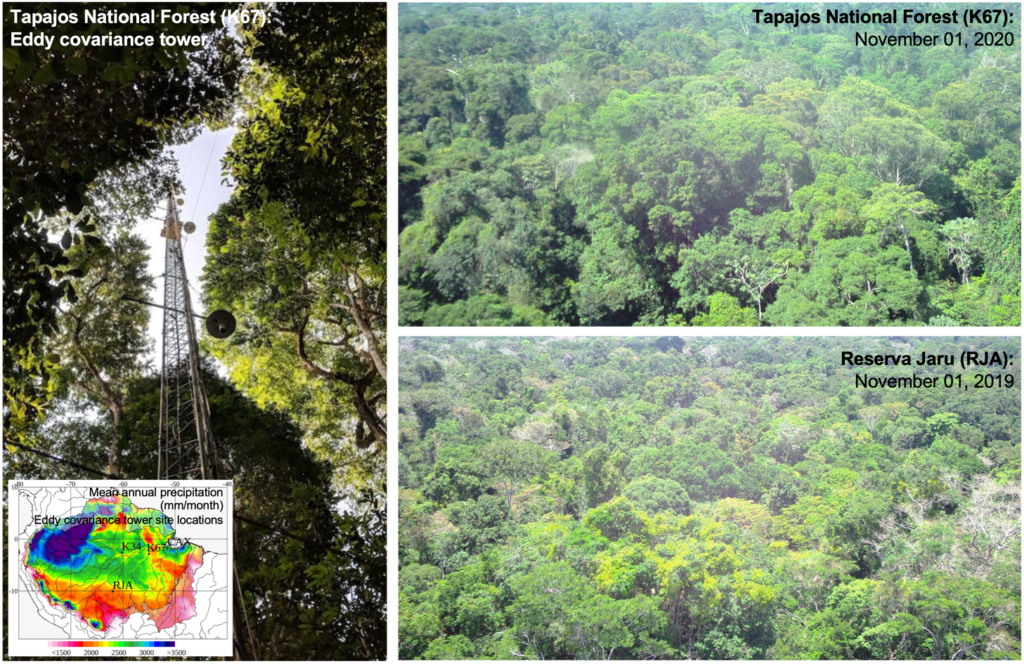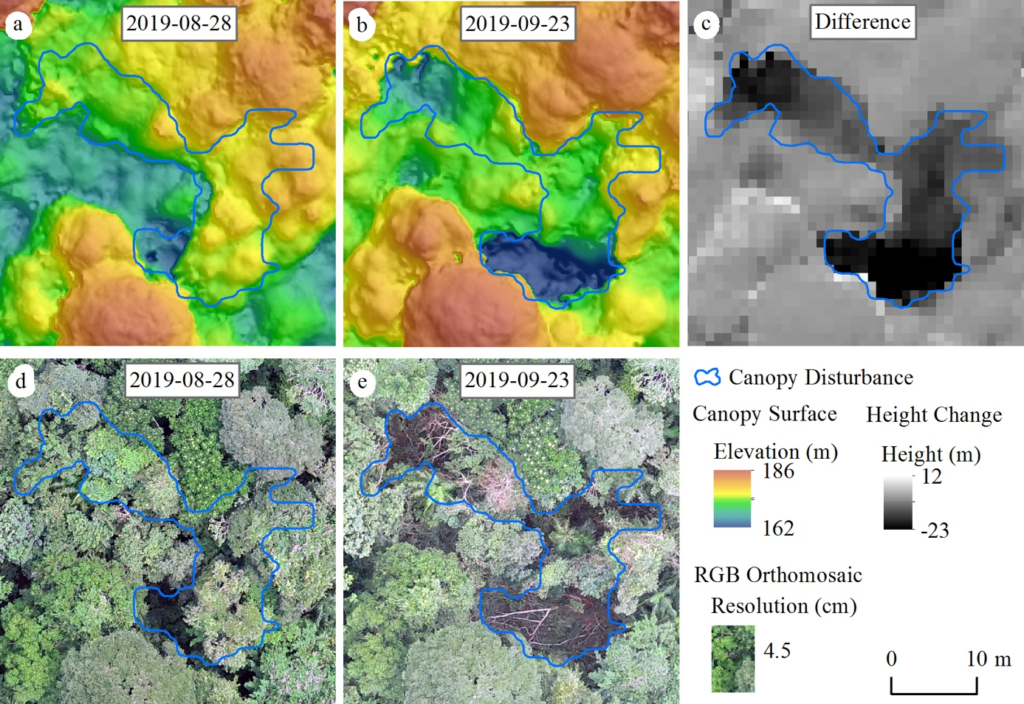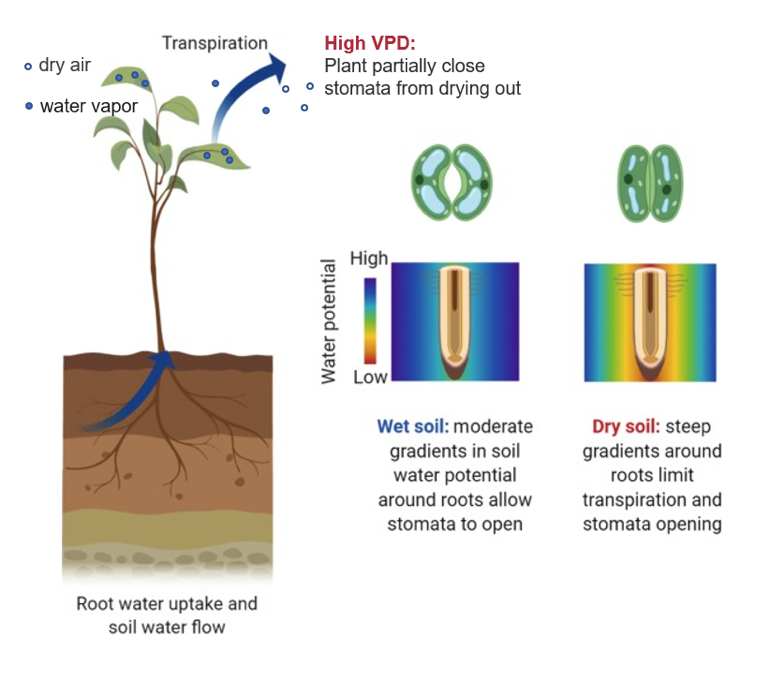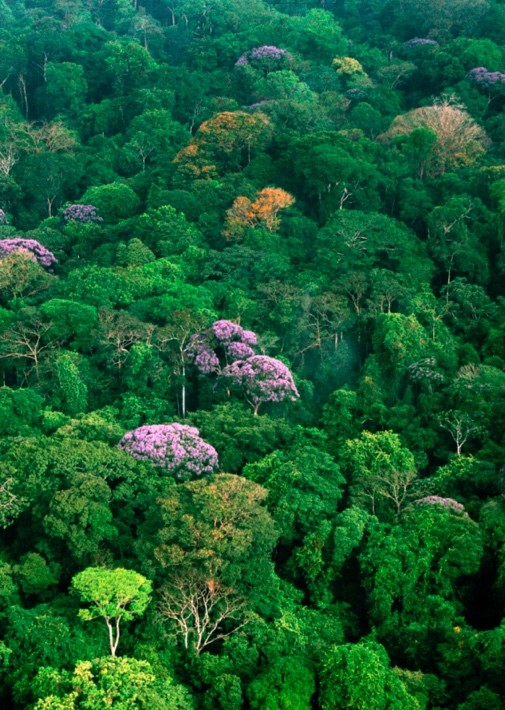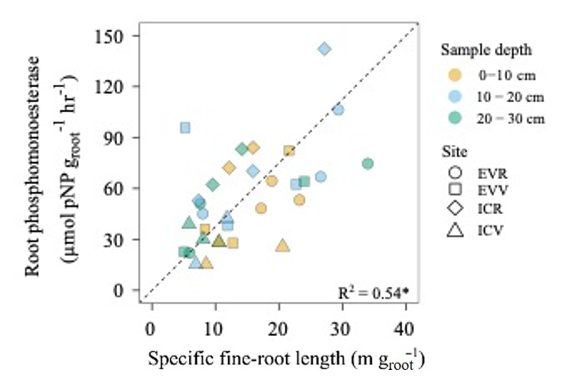NGEE-Tropics modeling lead and staff scientist at Lawrence Berkeley National Laboratory (LBNL), Charlie Koven, helped play a key role in the Intergovernmental Panel on Climate Change (IPCC)’s recent 2021 Climate Change Report. This report is the United Nations (UN) IPCC’s sixth installment in a series of climate change reports designed as summaries for policymakers, with the previous iteration last published in 2014. You can find the full report here. Charlie Koven was one of four LBNL scientists to contribute to the report’s efforts.

Figure 1. Charlie Koven alongside the cover image of the IPCC Climate Change 2021 Report from the UN IPCC website, which can be found at https://www.un.org/en/climatechange/reports.
As the modeling lead for the NGEE-Tropics project, Charlie directs the development of the Functionally Assembled Terrestrial Ecosystem Simulator (FATES). FATES, as an ecosystem model, will ultimately enhance the U.S. Department of Energy’s Energy Exascale Earth System Model (E3SM), allowing for a more complete and complex representation of Earth’s ecosystems. A notable highlight of the 2021 IPCC report are simulations that show that the proportion of CO2 emissions taken up by land and ocean carbon sinks is smaller in scenarios with higher cumulative CO2 emissions (Figure 2). Figure 2 is based on Earth system models like E3SM that NGEE-Tropics is building FATES to work within, with the goal of reducing uncertainty on this critical process needed for climate projections.
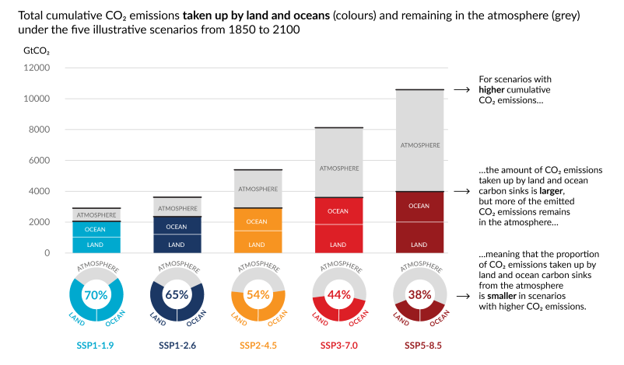
Figure 2. Figure 7 from the Summary for Policymakers in the 2021 IPCC report, which shows that the proportion of CO2 emissions taken up by land and ocean carbon sinks is smaller in scenarios with higher cumulative CO2 emissions.
A major theme surrounding the publication of the 2021 iteration of the IPCC Climate Change report is the pace at which we must tackle the climate crisis. There is a renewed sense of urgency sparked by the report. With climate science as sophisticated as it’s ever been, the 2021 report shows the future of climate change and global warming with a high degree of clarity. Various carbon emission and cycling scenarios are simulated in the report, with NGEE-Tropics’ own Charlie Koven playing an important role. In the report, a primary focus is the 2015 Paris Agreement’s goal of limiting warming to well below 2 degrees Celsius (C), with a target of 1.5 degrees C. There is one thing these scenarios have in common: swift and powerful action is required to avoid the escalating negative effects of climate change. To learn more about the 2021 IPCC report, and hear the perspective of Charlie and other LBNL scientists, check out the Berkeley Lab press release on its publication.
Lara Kueppers, another NGEE-Tropics science lead and LBNL scientist, has been helping spread the word on the 2021 IPCC Climate Change report. To provide a local perspective on the global climate change report, Lara Kueppers interviewed with the California Bay Area’s KQED to communicate some of the key messages contained within the 2021 IPCC report. The full interview can be found here, on the KQED website.

Figure 3. Lara Kueppers alongside the California Bay Area’s KQED logo from www.kqed.org.
Contact: Daniel Dores, ddores@lbl.gov, Berkeley Lab Program Operations Analyst. Charlie Koven, cdkoven@lbl.gov, Berkeley Lab Staff Scientist.
